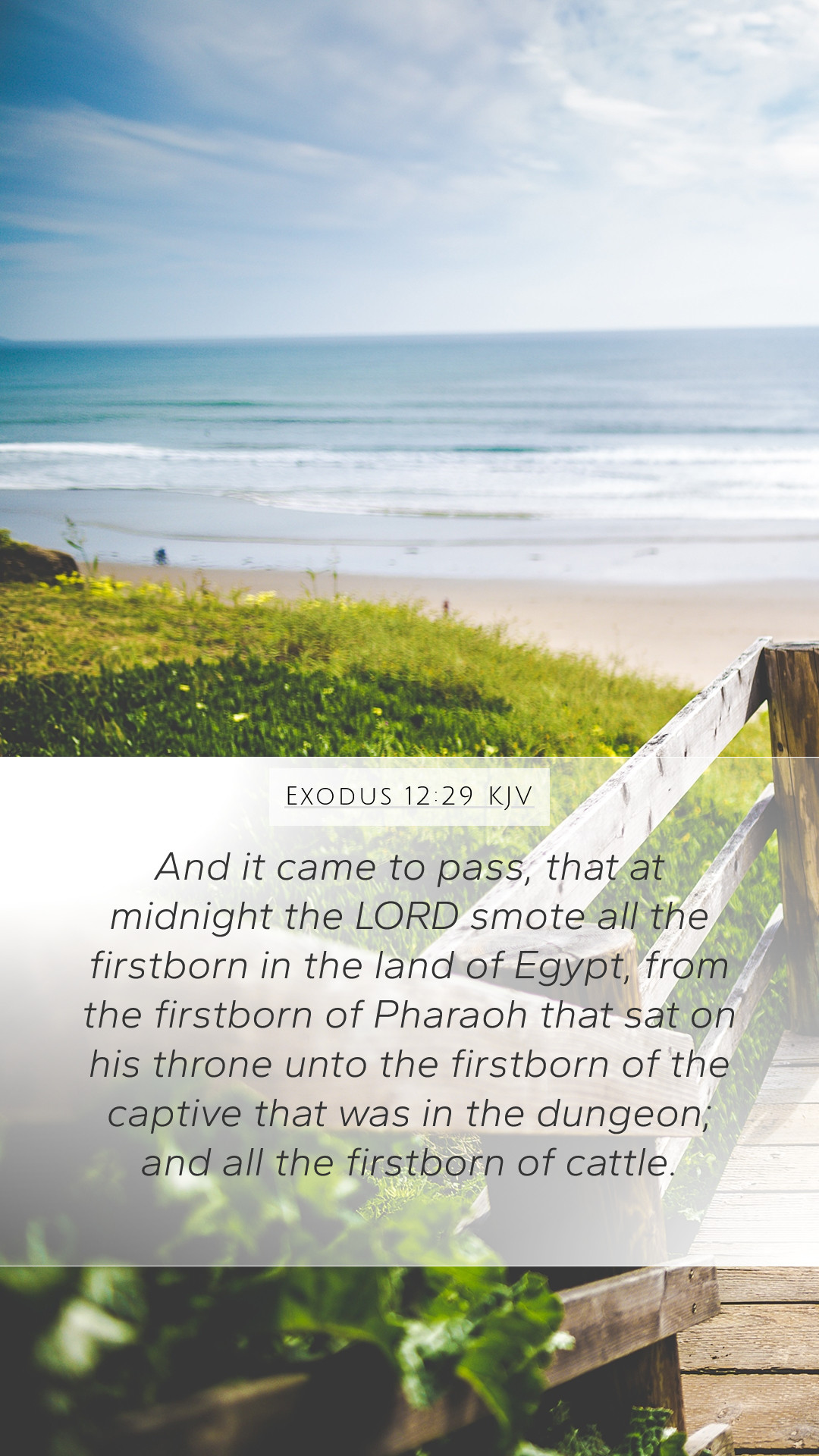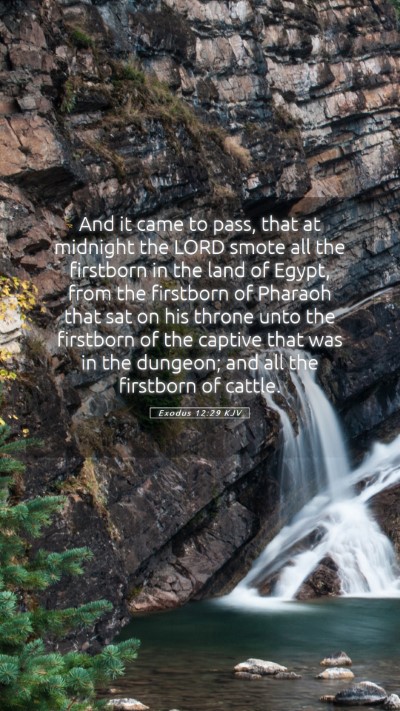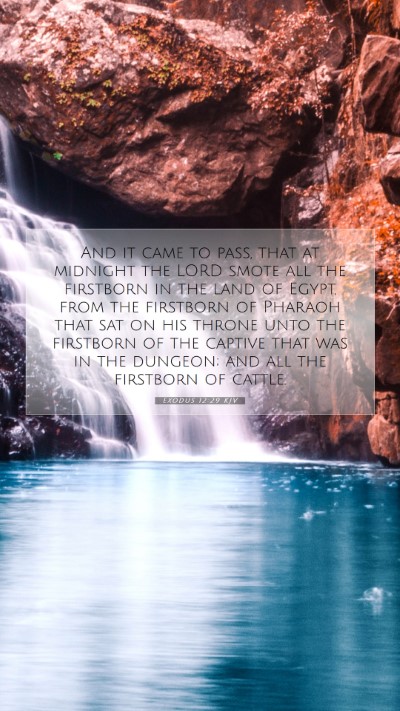Understanding Exodus 12:29 - Verse Meaning and Commentary
Exodus 12:29 states, "And it came to pass, that at midnight the Lord smote all the firstborn in the land of Egypt, from the firstborn of Pharaoh that sat on his throne unto the firstborn of the captive that was in the dungeon; and all the firstborn of cattle." This verse captures a crucial moment during the Exodus narrative, revealing both God’s judgment against Pharaoh and the fulfillment of His promise to deliver His people from slavery.
1. Context of Exodus 12:29
To comprehend the profound implications of this verse, we must consider its context. This culminates in the ten plagues that God inflicted upon Egypt, demonstrating His power and the stubbornness of Pharaoh's heart. It marks the final plague, which leads to the eventual liberation of the Israelites from bondage.
2. Biblical Exegesis and Commentary Insights
Combine insights from public domain commentaries such as Matthew Henry, Albert Barnes, and Adam Clarke yield a richer understanding of this profound text. Below, we summarize their contributions to elucidate the meaning and significance of Exodus 12:29.
Matthew Henry's Commentary
Matthew Henry points to the gravity of God's judgment against Egypt’s firstborn, emphasizing that this act was a direct response to Pharaoh's refusal to heed God's warnings. It signifies the culmination of the plagues, highlighting the seriousness of divine retribution. Henry also notes the contrasting fate of the Israelites, who were spared due to the blood of the Passover lamb, illustrating the theme of redemption.
Albert Barnes' Notes
Albert Barnes elaborates on the timing of this event—midnight—indicating that God acted swiftly and decisively. Barnes underscores the breadth of the judgment, affecting everyone from the highest ranks to the lowest in Egyptian society, demonstrating that no one can escape divine judgment. The reference to the “firstborn of cattle” symbolizes the comprehensive nature of God’s judgment, reaching every realm of life's hierarchy.
Adam Clarke's Commentary
Adam Clarke offers insights into the historical context surrounding this event. He elaborates on the significance of the firstborn in ancient cultures, often considered the most valued and the heirs to family fortunes. Clarke emphasizes that by striking down the firstborn, God targeted the Egyptian worldview, making it evident that their notion of divinity and status was impotent against the true God of Israel. He also interprets this act as God demonstrating His sovereignty over life and death.
3. Theological Significance
Theologically, Exodus 12:29 serves as a pivotal example of God's justice and mercy, which is inherent in His nature. The destruction of the firstborn serves as a warning against the rejection of divine authority, while the provision for the Israelites through the Passover lamb foreshadows New Testament themes of sacrifice and redemption through Christ.
4. Application in Contemporary Life
For modern readers and Bible study groups, this verse invites reflection on themes of obedience and the weight of sin leading to consequences. It prompts a discussion about the cost of disobedience and the significance of sacrifice, encouraging believers to apply the lessons of deliverance and God's protection in their lives today.
5. Cross References
- Exodus 12:12: God speaks of executing judgment against all the gods of Egypt.
- Exodus 11:4-5: Forewarning of the death of the firstborn is given to Moses.
- Numbers 3:13: The significance of the firstborn is reiterated in the law later given to Israel.
6. Conclusion
In conclusion, the verse Exodus 12:29 encapsulates a powerful act of divine judgment and mercy. By studying this passage, we gain insights into the nature of God, the consequences of sin, and the hope of redemption. This understanding enriches our Bible study insights, fostering a deeper appreciation of Scripture's teachings and their application in our lives.
Whether you are part of a Bible study group, engaging in online Bible study, or utilizing various Bible study tools, this verse prompts significant reflection on how we interpret the narrative of the Exodus and what it means for our lives today.


